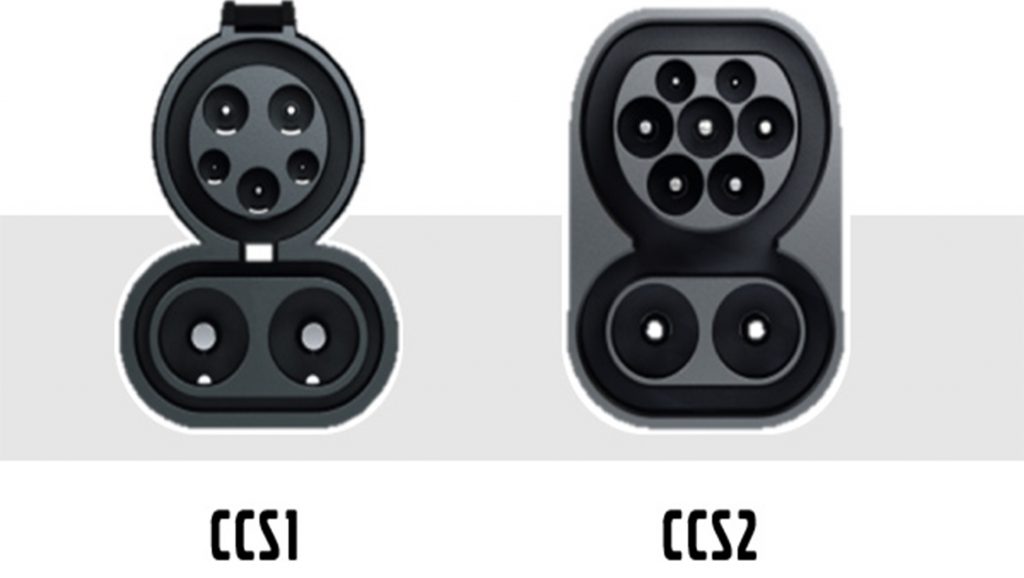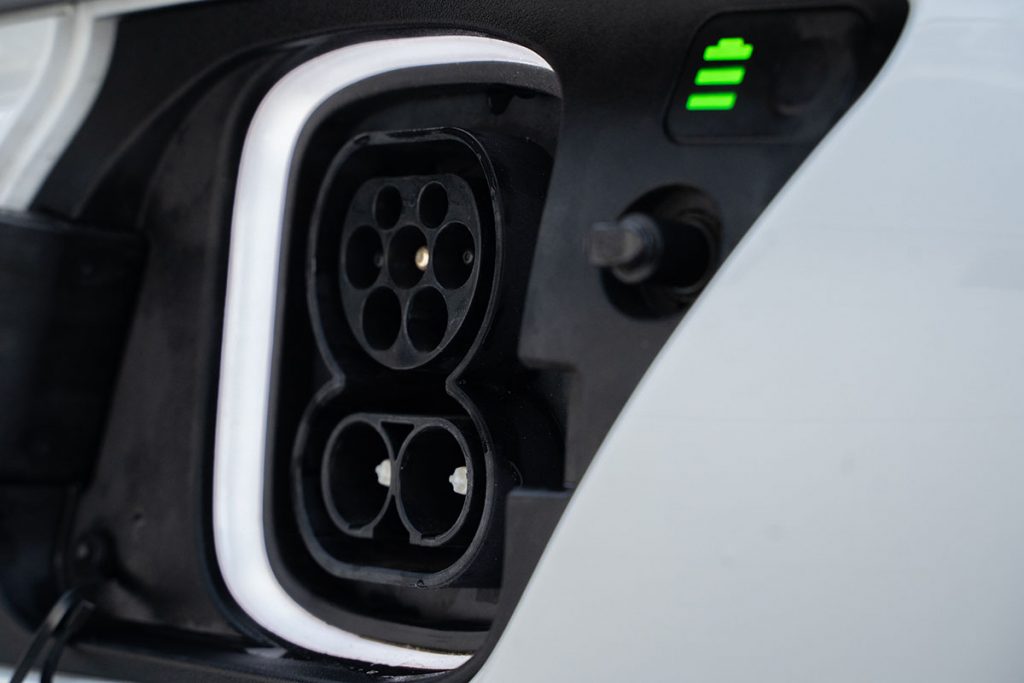In 2024, more and more people are choosing electric vehicles for traveling, and the choice of charging connector standards is becoming more and more important. Currently, the two most commonly used charging connector standards are CCS1 and CCS2. CCS1 utilizes a single plug shape, while CCS2 is designed to be more flexible and support multiple charging ports.
Although they are both part of the Combined Charging System (CCS) and are the global standard for EV charging, there are key differences between the two that can impact compatibility, charging speeds, and geographic usage.
In this article, we’ll dive into the technical differences between CCS1 and CCS2, the benefits of each, global adoption trends, and which standard may be better suited for your EV needs.
Table of Contents
ToggleWhat is a Combined Charging System (CCS)?
Combined Charging System (CCS) connectors are often referred to as “combo” connectors because they combine a standard alternating current (AC) charging connector with additional direct current (DC) pins for faster charging.
CCS connectors are capable of simultaneous AC and DC charging and are compatible with both slow charging (Levels 1 and 2) and fast charging (DC Fast Charging). fast charging (DC fast charging).
The primary goal of CCS is to create a versatile, future-proof charging system that meets the needs of a wide range of vehicles and charging infrastructures. This flexibility makes CCS one of the global standards for electric vehicle charging.
CCS Connector Components
AC Charging Pins: Used for slow or standard charging via alternating current, these pins are compatible with most home chargers or public AC chargers.
DC Charging Pins: When fast charging is required, the two pins on the underside of the connector handle high-power DC currents. This is a much faster charge than a typical AC charger.
The CCS system has been widely adopted because of its ability to handle both AC and DC charging in a single connector, simplifying the charging process for EV owners and helping to standardize infrastructure worldwide. The system is divided into two types of connectors based on geographic region and design preference: CCS1 and CCS2.
What is CCS1?

The CCS1 (Combined Charging System 1) connector is a standard for electric vehicle charging, primarily used in the North American market.
The CCS1 utilizes a single-plug design and supports both AC and DC charging, with DC fast charging rates of up to 350 kW in some cases, allowing for fast charging of electric vehicles.
Advantages of the CCS1
Fast Charging: The CCS1 supports high-power DC charging, which allows large amounts of power to be charged to an EV in a short period, reducing charging time.
Flexibility: It supports a variety of charging modes to adapt to the needs of different users, whether it is home AC charging or public fast charging.
Connector design: The CCS1 connector is equipped with a J1772 connector at the top for AC charging and two additional DC pins at the bottom for fast charging. This design allows for backward compatibility with existing J1772 AC chargers.
North American Adoption: CCS1 is the most commonly used charging standard in the U.S. and Canada, where automakers such as General Motors (GM), Ford, and BMW have adopted the standard for their electric vehicles.
Future Potential: As the EV market grows rapidly, the CCS1 infrastructure is expanding, enhancing user convenience.
Disadvantages of the CCS1
Uneven infrastructure: the number of CCS1 charging stations is still insufficient in some areas, especially in rural or remote areas, limiting the convenience of long-distance travel.
Equipment compatibility issues: not all EVs support CCS1, and some models may still use other charging standards (e.g. CHAdeMO), which may lead to inconvenient charging.
Cost issues: CCS1 charging posts are relatively expensive to build and maintain, which may affect users’ charging expenses.
Complexity of the charging process: Some users may not be familiar enough with the different charging modes and interfaces and need time to adapt.
Regional use: The main limitation of CCS1 is its limited use outside of North America. It is not widely used in Europe and Asia, which means that EVs equipped with CCS1 connectors may have difficulty finding compatible charging stations abroad.
What is CCS2?

CCS2 (Combined Charging System 2) is an upgraded version of the electric vehicle charging standard. It is mainly used in Europe and elsewhere and follows the IEC 62196-3 standard developed by the International Electrotechnical Commission (IEC).
As the most widely adopted standard for both AC and DC charging, CCS2 integrates these two charging methods to improve charging efficiency and compatibility, providing a more convenient charging experience for users.
Advantages of the CCS2
Higher charging power: fast charging capacity of more than 350 kW, which allows ultra-fast charging on public networks (e.g. IONITY in Europe).
Design optimization: The CCS2 interface is simpler, providing a better user experience and reducing the difficulty of operation.
Connector design: The CCS2 uses a Type 2 connector (also known as a Mennekes connector) on top for AC charging. This type 2 connector is the standard AC plug used throughout Europe. The bottom of the connector has two additional DC pins for fast charging.
Adoption in Europe and Beyond: CCS2 is the primary charging standard throughout Europe and is widely adopted by automakers such as Volkswagen, Audi, Porsche, and Tesla (European models).
Disadvantages of CCS2
Lagging infrastructure: While CCS2 is gaining popularity in urban areas, the number of charging posts is still insufficient in remote areas.
Device compatibility issues: Not all EVs support CCS2, and some older models may require adapters.
High construction costs: CCS2 charging posts cost more to build and maintain than CCS1 ones, which may affect charging fees.
User education needs: Some users may not be familiar with the new standard and will need time to adapt to the charging process and interface.
North American compatibility: CCS2 is not widely supported in North America, which means that a European or Asian EV with a CCS2 connector may have difficulty finding a compatible charging station in the U.S. or Canada without an adapter.
Key Differences Between CCS1 and CCS2
Although both CCS1 and CCS2 follow the same basic principles and belong to the same charging standards, there are some significant differences in design, regional use, and compatibility. The following is a concise table of the differences.
| aspect | CCS1 | CCS2 |
| Geographic Use | Mainly for North America | Mainly used in Europe, Asia, and worldwide |
| Connector Type | J1772 (for AC) + 2 DC pins | Type 2 (Mennekes) + 2 DC pins |
| AC Charging Standard | J1772 (SAE standard) | Type 2 (IEC standard) |
| DC Fast Charging Speed | Up to 350 kW (depending on charger) | Up to 350 kW (depending on charger) |
| Compatibility | Compatible with North American charging stations | Cooperation with European and global radio stations |
| Backward Compatibility | Compatible with J1772 AC chargers | Compatible with Type 2 AC chargers |
| Worldwide Adoption | North America only | Widely distributed in Europe, Asia, and beyond |
Which Is Better: CCS1 or CCS2?
When choosing between the CCS1 and CCS2, the main considerations are your geographic location and the availability of charging stations. If you are located in North America, the CCS1 is the best choice because it is compatible with most local fast charging stations and integrates seamlessly with existing J1772 charging equipment. Major charging networks such as Electrify America and EVgo widely support the CCS1, making it ideal for EV users planning to charge in North America.
Comparatively speaking, CCS2 is preferred if you are in Europe or Asia. It has become the dominant charging standard in these regions, offering greater charging flexibility and compatibility. Additionally, CCS2 supports higher charging power, which meets the demand for fast charging and is suitable for those who wish to use the global charging network. So which standard you choose depends largely on your region and individual needs.
If you’re looking for reliable charging solutions, check out MoredayDC for a wide range of high-quality DC fast chargers that support both CCS1 and CCS2 standards. Our chargers are designed to meet the evolving needs of electric vehicle users, ensuring you have access to efficient and convenient charging no matter where you are.
FAQ
Is CCS1 Compatible with CCS2?
There is no direct compatibility between CCS1 and CCS2. Although both are combined charging systems, they have different interface designs and technical standards, and therefore electric vehicles are usually not able to directly use charging equipment of the other standard.
However, some charging devices and adapters can support conversion between the two, but this is not always reliable or universally applicable.
Do Tesla Superchargers Use CCS or Type 2?
Tesla Superchargers use Tesla’s charging ports in North America, but Tesla charging stations in Europe use CCS2 ports. This means that in Europe, Tesla models can be charged using CCS2 charging stations, while Tesla models in North America still rely heavily on Tesla’s dedicated charging network.
Related reading: Types of EV charging connectors

